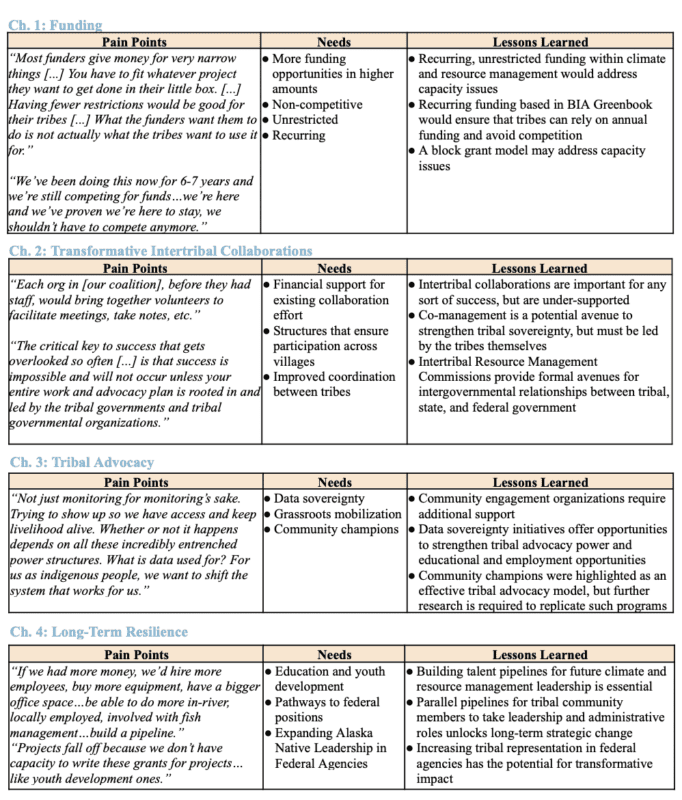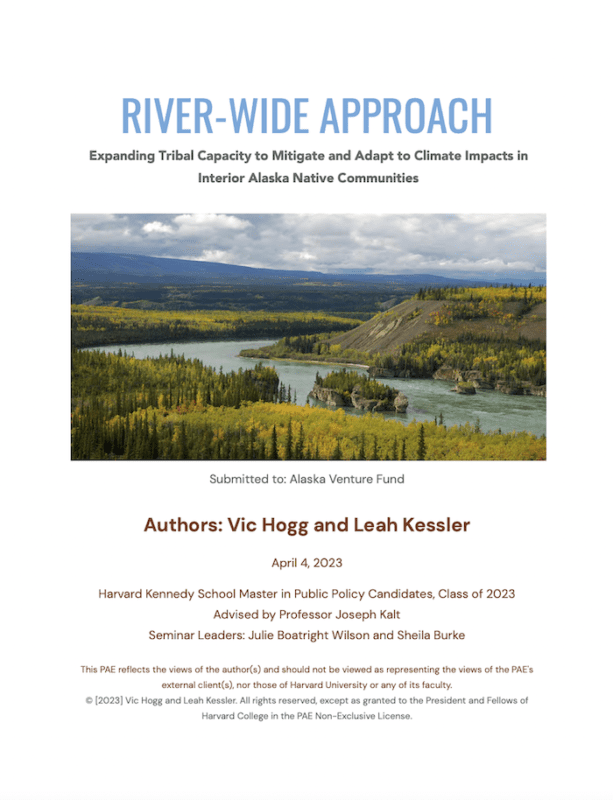Authored by Vic Hogg and Leah Kessler as a Harvard Kennedy School Master in Public Policy, Policy Analysis Exercise (PAE)
Executive Summary
While Alaska Natives have always been intimately involved in the stewardship of Alaskan ecosystems, their lifestyles and cultural practices are threatened as ecosystems rapidly decline due to climate change. Three of the most pressing risks to Interior Alaska Native tribes are wildfire, salmon decline, and permafrost melt.
Due to the fragmented nature of public funding programs and land management authorities, work to address climate impacts amongst Alaska Native communities tends to become siloed and reactionary. Because of this, community engagement also tends to be organized around one crisis and not the other. The Alaska Venture Fund (AVF) is launching a grant program to fund locally-led climate resiliency programs amongst Interior Alaska Tribes to answer: what solutions for community resilience and better stewardship of ecosystems lay at the intersection of these three climate crises and within Indigenous communities?
Two students at the Harvard Kennedy School (HKS) of Government attempted to answer this question through interviews with partners across grassroots organizations, state and federal government, and tribal leadership. The goal of this research is to more deeply understand success factors and pain points of existing tribally-led climate impact efforts, and to inform funding opportunities with these findings. Please note, this report is not analyzing the substantive steps that tribes should be taking in regards to climate change mitigation. Rather, this report provides an analysis of tribes’ organizational capacity to be in a good position to mitigate and adapt to climate impacts.
Based on their data collection and learned lessons analysis, the research team developed the following options for AVF and possible future funders to consider:

The report is structured into four overarching theme-based chapters: 1) Funding, 2) Transformative Intertribal Collaborations, 3) Tribal Advocacy, and 4) Long-Term Resilience. In each chapter the team has highlighted the pain points and needs they heard from community members and, from these, generated lessons learned, which are summarized in the table below.

